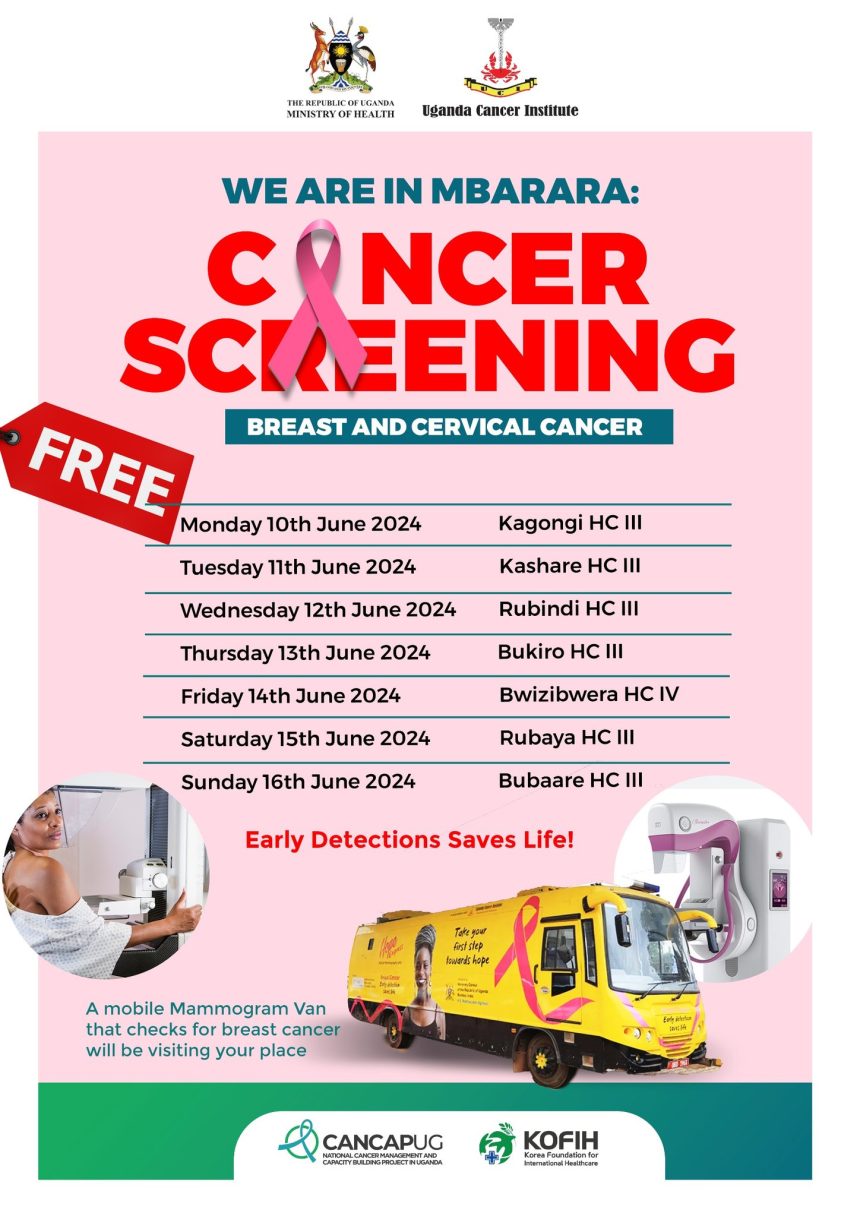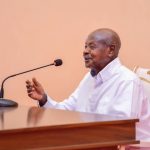Dr. Jackson Orem, the Executive Director of the Uganda Cancer Institute (UCI), defended the institute’s decision to continue charging patients seeking services at the private wing, despite appeals from Members of Parliament (MPs) to cease the practice.
He emphasized that the revenue generated from such charges is crucial for maintaining equipment, as the government’s funding alone falls short of covering maintenance costs.
Addressing the Parliament’s Public Accounts Committee (PAC), Dr. Orem highlighted the international standard of cancer treatment, which necessitates uniformity regardless of patients’ financial status. Even with additional government funding, he stressed that the institute would still face financial constraints due to the costly nature of cancer treatment.

Dr. Orem conveyed his perspectives while engaging with Legislators on Parliament’s Public Accounts Committee (PAC), where he was summoned to address the findings of the December 2023 Auditor General’s report.
Amidst the session, Muwanga Kivumbi, the MP for Butambala County, raised concerns about the functioning of the Institute’s private wing, highlighting an annual revenue collection of only UGX4.5 billion. Kivumbi suggested that if this revenue were incorporated into the Institute’s budget by the Government, it could facilitate the provision of free services to all Ugandans.

Government agencies, despite receiving substantial subsidies, often struggle financially, especially those offering private services. Hence, it would be more prudent to adequately finance UCI, even if it means allocating a modest sum of Shs4 billion annually, despite any discomfort it may cause, Kivumbi commented.
But Dr. Orem argued that even if the Government allocates to the Institute the requisite funds, there will still be a significant shortfall.
Cancer treatment adheres to international standards uniformly, meaning the quality of care remains consistent regardless of one’s financial status. Therefore, even with the addition of Shs4.5 billion, the impact would be limited,” explained Dr. Orem.
He underscored the significance of the private wing’s revenue in sustaining operations. He clarified that while the institute receives substantial public funds, the revenue from the private wing is vital, especially considering the high costs associated with cancer treatment.
Meanwhile, Dr. Nixon Niyonzima, the Institute’s Head of Research and Training told the MPs that the decrease in revenue collection in recent years was due to a reduction in the number of patients attending private services. However, he expressed optimism about future revenue growth following the procurement of new radiotherapy machines.
Providing a breakdown of charges imposed at the private wing, Dr. Niyonzima emphasized the necessity of charging patients to support equipment maintenance. He reiterated the institute’s need for increased government support to address funding gaps and enhance research and treatment capabilities.
We have installed four new radiotherapy machines and we expect that
with the increase of these machines, we expect that the Non-Tax Revenue – NTR collections will increase in the coming financial years. Dr. Niyonzima explained.
According to Dr. Niyonzima, the Institute currently charges a patient an Admission fees of UGX 100,000 per night; consultation fees UGX 50,000, laboratory blood UGX 10,000, ultrasound UGX 10,000, X-ray UGX 30,000, a Computed Tomography – CT Scan, an imaging test that helps healthcare providers detect diseases and injuries between UGX 200,000 – UGX 300,000 depending on the organ the patient, among others.
The Institute’s management urged MPs to advocate for increased funding to bolster their investigative capacity, preventing the outflow of resources to other countries for essential procedures. They also emphasized the urgent need for a Post-Exposure Prophylaxis, or PEP center in the country to further address the gap.
Cancer is a non-communicable disease (NCD) which has increasingly contributed to the health burden in the country both socially and economically. According to the Uganda Cancer Society – UCS, the most common types of cancer in the country are; cancer of the cervix, cancer of the breast, cancer of the prostate, kaposis sarcoma, cancer of the ovary, cancer of the colon, cancer of the liver, leukemia, burkitts lymphoma (commonly found in children), among others.
A 2022 statistics from the Society reveals that in 2022, the country recorded 35, 968 cases of cancer among which included; cervix uteri 6,938 (19.3 %), kaposis sarcoma 4,047 (11.3%), breast 2,999 (8.3%), prostrate 2,699 (7.5%), oesophagus (2,438 (6.8%) while others were 16,847 (46.8%).









